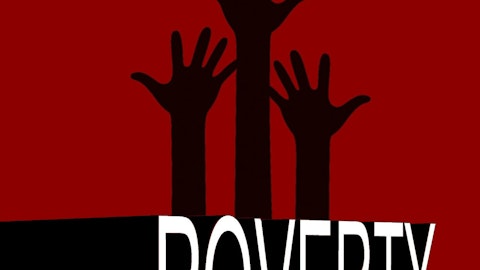Today we present you the ranking of 7 best Ivy League schools for psychology, where you will find departments which boast more than a century long traditions and faculties who have been elected to prestigious institutions such as the National Academy of Sciences and American Academy of Arts and Sciences.
Getting into an Ivy League school is not an easy task. Excellent grades are not enough as admission committees are looking for applicants who have managed to accomplish something significant outside classroom either through sports, social activism, art, or any other area which is not strictly connected to the curriculum. Some of these elite institutions, such as Harvard, admit only 6 percent of applicants. Although getting into an Ivy League school might require significant preparation, the possibilities offered by these colleges make the effort worthwhile.

Dragon Images/Shutterstock.com
Students who get admitted to these universities profit from working under the supervision of renowned professors. The abundance of research opportunities is not only reserved for graduate students, but undergrads are also expected to get the first-hand experience by conducting independent projects. Moreover, some of the listed institutions give psychology majors, and PhD pursuers chance to spend some time abroad at foreign schools and thus enrich academic as well as life experience.
Psychology has been one of the most popular majors among American students for years. Unlike in the case of a sudden popularity of computer science programs, the reasons motivating young people to pursue the degree in psychology have little to do with the money. According to Pay Scale report, BA holders earn $37,600 at the beginning of the career, while mid-career pay amounts to $61,800 annually. Although MA and PhD degrees increase salary for about 20 to 75 percent, psychologists are near the bottom of the list of highest paying graduate degrees. One of the reasons for this might be the fact that many psychology degree holders find a job in educational and social security institutions which are not among the highest paying. A positive thing though is that demand for the profession will grow at a significantly faster rate than the national average for all occupations. According to Bureau of Labor Statistics, by 2024, there will be 32,500 new jobs, which is a 19 percent increase.
In creating the ranking of 7 best Ivy League schools for psychology, we relied on QS World University Rankings 2015 which took into account objective criteria such as academic and employer reputation, and research impact. We also considered the list of Best Psychology graduate programs, coming from US News, which was based on the results of surveys sent to academics. By combining these two lists, we ranked Ivy League institutions in the following order. If you don’t find school that matches your goals and interests below, check out our previous list of 7 best universities in the world for psychology.
7. Brown University
World University rank: 51-100
US News rank: 26
Cognitive, linguistics, and psychological science department at Brown University is the youngest program on this list. It was established in 2010 with the aim of providing an interdisciplinary approach to studying the mind, brain, behavior, and language. Undergrads choose between four concentrations – cognitive neuroscience, cognitive science, linguistics, and psychology. Those who opt for psychology as a major are expected to complete courses in Introductory Psychology, Quantitative Methods, and Laboratory work, as well as courses in areas such as Perception & Cognition, Comparative/Physiological, and Social/Personality/Developmental psychology. Depending on whether they pursue A.B. or Sc.B. degree, students need to complete a number of elective courses and a research project. PhD students are admitted to the program as a whole and choose one of three major areas after the first year. Those who decided to focus on psychology are granted financial aid for five years, and they can also apply for student stipend. Grad students participate in research projects, seminars, teaching, and career development programs.
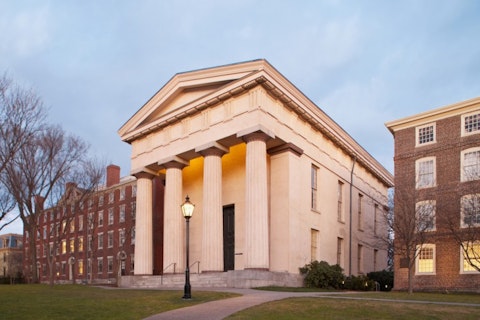
aastock/shutterstock.com
6. Cornell University
World University rank: 43
US News rank: 14
Majors in psychology at Cornell choose between three tracks – perception, cognition, and development (PCD), behavioral and evolutionary neuroscience (BEN), and personality and social psychology (S&P). Each of three concentrations, besides including psychology related courses, also contains subjects from other fields. For instance, PCD students take cognitive science minor, and they are expected to demonstrate knowledge of philosophy, linguistics, computer science, or neurobiology. BEN concentrators take courses related to chemistry, biology and anatomy while S&P majors select courses in cultural anthropology, social methodology, experimental psychology, etc. Graduates at Cornell also choose between three previously mentioned areas. The program is affiliated with 39 faculty members from different departments, and it offers extensive research opportunities at some of 16 laboratories.
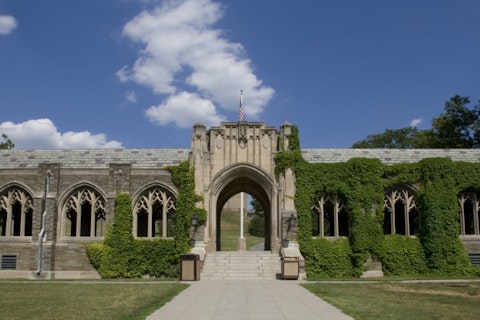
intoit/Shutterstock.com
5. Columbia University
World University rank: 18
US News rank: 14
Established in 1890, Columbia’s Department of Psychology is one of the oldest in the country. In its more than a century-long history, the department has been home to faculty that has won numerous awards and recognition, including APA’s Distinguished Scientific Contribution Award and APS’s William James Award for Distinguished Achievements in Psychological Science. Currently, nine faculties are members of the American Academy of Arts and Sciences and four of the National Academy of Sciences. Psychology undergrads need to complete courses in Introductory Psychology, Laboratory, Statistics and three courses in following concentrations: Perception and Cognition, Psychobiology and Neuroscience, Social, Personality, and Abnormal. Moreover, psychology majors are expected to take seminars and elective courses. During the first year graduate students choose the subject they want to focus on in areas such as behavioral neuroscience, perception, cognition, and social-personality psychology. The PhD program heavily relies on independent research while coursework represents a small fraction of the study. Department of Psychology does not offer specializations in clinical psychology, school, counseling or industrial psychology. Students interested in these areas should apply to the Columbia Teacher’s College.
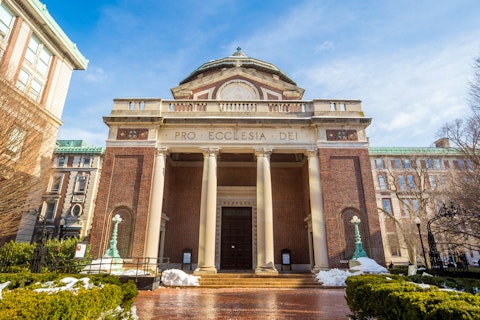
f11photo/Shutterstock.com
4. University of Pennsylvania
World University rank: 15
US News rank: 12
The psychology program at the PEN University, which ranks as fourth on our list seven best Ivy League schools for psychology, is the oldest continuously functioning in the US. The department is proud of its long history during which it has been home to members of the National Academy of Sciences and the American Academy of Arts and Sciences. List of faculty members has also included presidents of prominent institutions such as the American Psychological Association, Society for Judgment and Decision Making, and Linguistics Society of America. One of the distinguishing characteristics of the PEN undergraduate program in psychology is that students are expected to complete one year of empirical research which can be done either by taking Research Experience course or by doing a research project. The focus on the first-hand experience reflects the department’s aim of training students to apply practically the knowledge they acquire through course work. Moreover, psychology majors at PEN need to have mastery of statistics. Their older peers are admitted to the program as a whole and together with faculty they choose their primary area of inquiry. Research fields at PEN can be divided into two broad categories – Brain, cognition and decision science, and Clinical, positive and social psychology, both of which have numerous sub-fields. Besides doing coursework, graduates at PEN deepen their knowledge through research projects, seminars, and teaching.
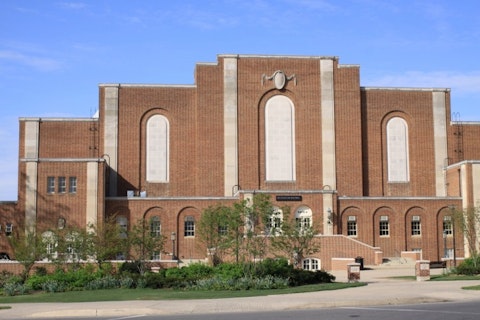
Richard Paul Kane/Shutterstock.com
3. Princeton
World University rank: 10
US News rank: 7
A distinguished feature of undergrad psychology program at Princeton is its focus on empirical findings, research methods, and quantitative analyzes. Concentrators are expected to master statistics and have a strong base in neuroscience. Undergrads can take part in numerous research projects which range from language development in children to role of biases and stereotypes in social cognition. Compared to previously mentioned universities, Princeton offers graduate students a broader range of research fields, some of which represent the newest areas of interest in today’s science of psychology. The school also offers interdisciplinary programs which are a combination of psychology and neuroscience on one side, and psychology and social policy on the other. According to Princeton Review, psychology is seventh most popular major at the university.
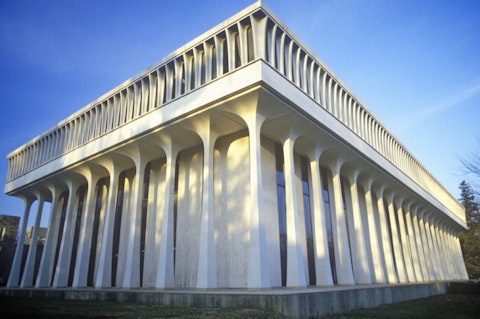
Joseph Sohm/Shutterstock.com
2. Yale
World University rank: 2
US News rank: 4
Yale is one of few universities which offer its undergrad psychology students early opportunity to spend some time at foreign universities. Graduate students can choose one of following five areas of research: Clinical, Cognitive, Developmental, Social/Personality Psychology and Neuroscience. They can as well take interdisciplinary route and collaborate with other departments. Since a small number of applicants get admitted to the PhD program, students can expect to receive extensive attention from faculty. Those who study at Yale profit from access to numerous research facilities, including the department’s own psychology clinic and a few research centers. On US Today’s list of the best programs in Clinical Psychology in America, Yale ranks as fourth, which is the best position among Ivy League institutions.
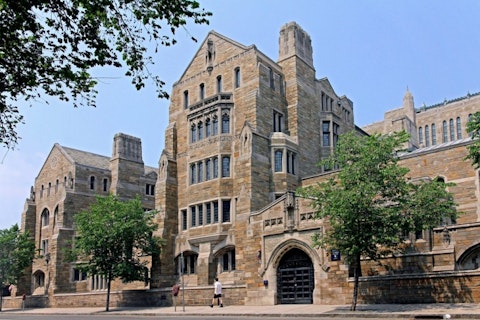
Pete Spiro/Shutterstock.com
1. Harvard
World University rank: 1
US News rank: 4
The oldest educational institution in America, Harvard University, offers one of the top-ranked programs in psychology in the world, so it is no wonder that it ranks as first on our list of 7 best Ivy League schools for psychology. The department was established in the second half of the 19th century as a result of William James’s efforts. Since its beginnings, it has been home to some of the most influential psychologists including F. Skinner, Gordon Allport, Jerome Bruner, George Miller, and Henry Murray. Today, psychology at Harvard is the most popular major among undergraduate students who can choose one of three tracks: general track, which is the most flexible and the most popular among undergrads, cognitive neuroscience, and evolutionary psychology, and cognitive science track. Concentrators participate in research projects, and they also have the opportunity to spend one academic year or summer at some of the foreign universities. Their older peers can explore in depth one of four areas: Cognition, Brain, & Behavior; Developmental Psychology; Social Psychology; and Clinical Science. Harvard’s Psychology department has 30 faculty members and around 65 graduate students.
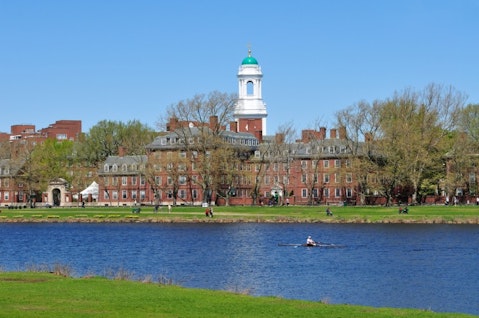
Jorge Salcedo/Shutterstock.com
